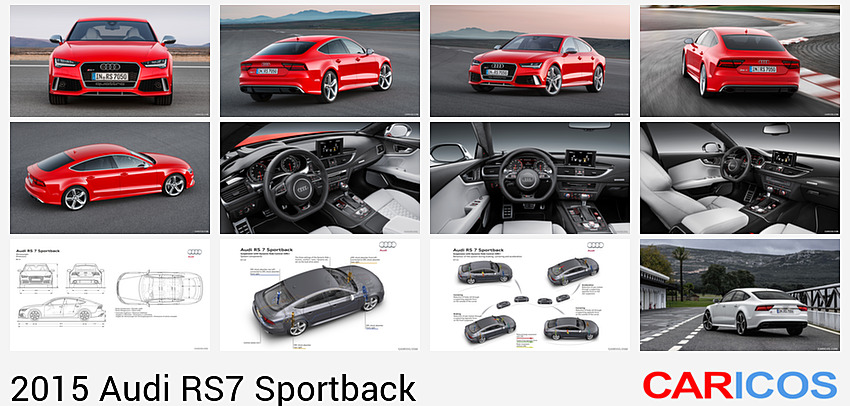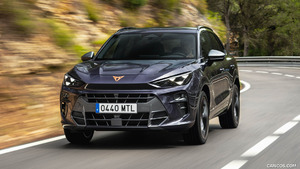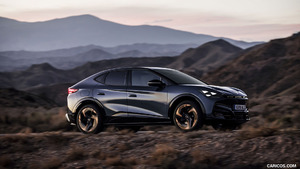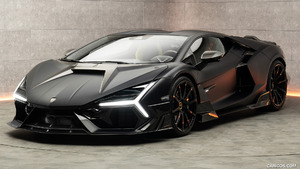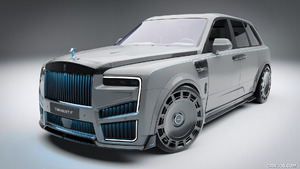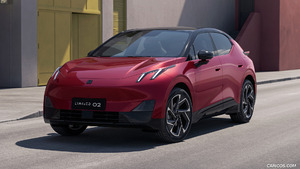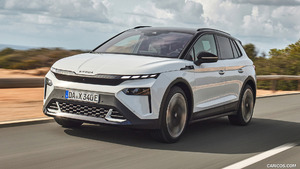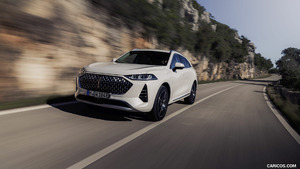Audi RS7 Sportback
Dynamics in a new top form – Audi has honed the RS 7 Sportback. The large five-door coupé comes with new LED headlights and even more enhanced infotainment features. With 412 kW (560 hp) and 700 Nm (516.3 lb-ft) of torque, its 4.0 TFSI engine provides for an impressive driving performance at a fuel consumption rate of only 9.5 liters per 100 kilometers (24.8 US mpg) with 221 grams CO2 per kilometer (355.7 g/mi).
“The Audi RS 7 Sportback confirms the reputation of the RS models as the superior, top athletes of our brand,” states Prof. Dr. Ulrich Hackenberg, Member of the Board of Management for Technical Development of AUDI AG. “The combination of a powerful four-liter V8 engine with cylinder on demand technology, quattro drive and intelligent lightweight design makes the RS 7 Sportback an outstanding piece of sports equipment for any fan of dynamic and yet efficient driving.”
Even at first glance, the Audi RS 7 Sportback reveals its dynamic character – the long engine hood, the sporty and flowing C-pillars and the sharply sloping rear end form an aesthetic overall impression. New design details add striking touches. They include the Singleframe grille with the black honeycomb typical of RS models, with the corners now even sharper and more distinctive. Three optional packages – matt aluminum, gloss black and carbon – make the look of the RS 7 Sportback even more distinctive. The central front air inlet bears the quattro lettering. Slight modifications have also been made to the bumper, with its distinctive air inlets.
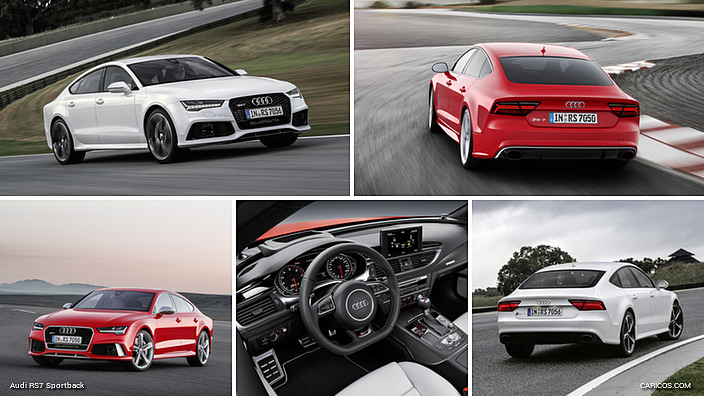 2015 Audi RS7 Sportback
2015 Audi RS7 Sportback
The headlights, also adapted to the new Singleframe, come with LED technology as a standard feature. On request, Audi provides the headlights with the innovative Matrix LED technology, available exclusively on the RS 7 Sportback with additionally darkened trims. This offer also includes turn signals with dynamic display at the front. At the rear they are generally standard. The tail lights also have a new interior design. New to the paint finishes are the colors Floret Silver, metallic; Glacier White, metallic; Mythos Black, metallic and Sepang Blue, pearl effect.
In the elegant black interior, dominated by the RS sport seats, the designers have discreetly revised the instrument cluster: the air outlet controls of the vent nozzles, the shift paddles behind the steering wheel and the quattro emblem on the instrument panel. The standard MMI navigation plus with MMI touch now uses the modular infotainment platform of the latest generation; its highlight is an efficient graphics processor from Audi’s partner, Nvidia.
The 4.0 TFSI in the revised Audi RS 7 Sportback provides as before 412 kW (560 hp), with a constant 700 Nm (516.3 lb-ft) of torque at engine speeds between 1,750 and 5,500 rpm. The engine catapults the five-door coupé from 0 to 100 km/h (62.1 mph) in 3.9 seconds; the optional dynamics packages allow top speeds of 280 and 305 km/h (174.0 and 189.5 mph), respectively. In the ECE cycle however, the resonant V8 bi-turbo needs only 9.5 liters of fuel per 100 kilometers (24.8 US mpg) with 221 grams CO2 per kilometer (355.7 g/mi). A key factor in this efficiency is the cylinder on demand (COD) system, which can shut down four cylinders during partial load operation.
An eight-speed tiptronic tuned for sporty performance, with a tall eight gear, directs the power of the eight-cylinder engine to the quattro permanent all-wheel drive. On request, Audi will combine quattro all-wheel drive with the optional sport differential on the rear axle.
The RS adaptive air suspension, together with adaptive damping, standard on the RS 7 Sportback, lowers the body by 20 millimeters (0.8 in); its control is incorporated in the Audi drive select driving dynamics system. Audi offers the tauter RS sport suspension plus with Dynamic Ride Control (DRC) as an alternative. A further option is dynamic steering, with its continuously variable steering ratio.
The revised Audi RS 7 Sportback is fitted with 20-inch forged lightweight alloy wheels as a standard feature; 21-inch cast aluminum wheels in three color versions are optionally available. The four internally ventilated brake disks have a weight-saving wave design; alternatively Audi installs carbon fiber-ceramic disks. Electronic Stabilization Control (ESC) has a Sport mode that can be deactivated altogether if need be.
The Audi RS 7 Sportback can be ordered in Germany from the 3rd quarter 2014. Its base price is €113,300.

